US regime change plot busted in Harare!
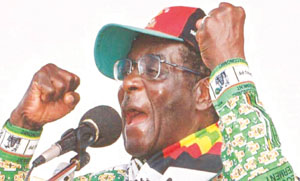
Figures under the title “Summary of Foreign Assistance Requests — Mission Requests” in the plan show that the embassy had requested about US$140 million for the clandestine project.
The strategic plan, which covers the period between 2008 up to the end of this year, outlines the US government’s three-pronged approach to effect regime change as: putting pressure on the Zimbabwean Government, providing assistance to opposition political parties and civil society and the provision of aid to the people of Zimbabwe.
MORE ARTICLES
- No to EU supremacy: President Mugabe
- WikiLeaks: One shame more, one gain less
- Sanctions on Zim not aiding political healing
- US scorns ‘inept’ MDC leadership
The embassy, which was under James McGee at the time, wrote that for the acceptance of this plot, it had to “promote a positive image of the US and US government programmes” and promote American principles and values, but quickly declared that “no other goal supersedes in importance the mission’s efforts to respond to the needs of American citizens in Zimbabwe”.
The leaking of the document in Wikileaks-style fashion is set to put the US Embassy in Harare in panic mode as the Obama administration is currently battling to contain leaks published by Wikileaks last Sunday.
Under the “Chief of Mission Statement”, the embassy predicted that the removal of President Mugabe from power would happen during the 2008 to 2010 period, adding that the March 29 2008 elections provided the first opportunity for change.
The embassy states that “during the next three years, the US Mission in Harare will focus on promoting Zimbabwe’s transformation” but acknowledged that “Embassy Harare faces exceptional challenges, expects to encounter exceptional opportunities, and requests exceptional treatment”.
“Change is likely to come to Zimbabwe during the 2008-2010 period. Elections to be held on March 29 2008 provide the first opportunity for change . . . ” said the embassy, adding that “(President) Mugabe’s eventual departure from power will create an opportunity but cannot guarantee fundamental reform . . .
“The challenge for the USG (US government) is to ensure that the opportunity for real reform is not missed. In the short term, while Mugabe continues to cling to power, we will continue laying the groundwork for reform by maintaining our three-pronged approach to promote change: pressure on the regime, assistance to Zimbabwe’s democrats, and aid for its suffering people.
“On Mugabe’s departure, we will need to exercise leadership within the donor community to maintain unity and ensure that a successor regime understands that generous foreign assistance will support serious reform but that the international community will require actions and not just words. Donor co-ordination efforts have laid a solid foundation for this task.”
The embassy said it would work closely with the IMF on macro-economic policy reform and offer targeted assistance to promote private sector development.
“Our public diplomacy initiatives also encompass a wide-ranging outreach programme that reaches Zimbabweans in high-density urban areas as well as rural areas and creates goodwill through cultural, educational and social programming. Through two American Corners and travel by embassy officers and visiting speakers, the mission seeks to reach Zimbabweans throughout the country . . .
“Of course, no other goal supersedes in importance the mission’s efforts to respond to the needs to American citizens in Zimbabwe,” said the embassy.
However, the embassy said the ability to meet its goals depended on the availability of resources “in excess of our current allocations. Our needs reflect both the new ambitions we have set for ourselves and the reality that current budgets are inadequate to support even existing levels of activity”.
The embassy called for the improvement of security “at our facilities and residences” to match “the current threat environment”.
“In FY (Fiscal Year) 2010, USAID anticipates requiring an additional three USDH (US Direct Hire) positions to better manage the size and complexity of its programme in the context of political change in Zimbabwe,” said the embassy.
It added: “Even if change does not come as a result of March 2008 elections, Mugabe’s age, the fissures in his party (Zanu-PF), and the people’s growing dissatisfaction all augur well for change in the near future.” The embassy pledged to assist in reforming the judiciary and the security sectors, both law enforcement and military. If democracy (regime change) is delayed, the mission’s foreign assistance programme would continue its current three-prong approach of pressurising the regime, providing assistance to democratic political parties and institutions, and supporting those affected by the GOZ’s (Government of Zimbabwe) poor governance policies.
“Towards this end, the mission would continue to support independent media . . . expand the efforts of civil society to apply pressure on the Government . . . keep the opposition voice alive,” the embassy revealed.
“The mission’s foreign assistance priorities for FY2010 comprise an integrated strategy to ensure that the USG attains its transformational diplomacy goals in Zimbabwe.
“The installation of a new government will bring many opportunities for the USG . . .”
Under its Goal Papers, the embassy said it would partner with Usaid to increase the number of effective civil society organisations.
In the FY 2007, the embassy’s target was to create 15 civil society organisations but it ended up creating 29 organisations.
In the FY 2008, the embassy aimed to create 32 civil society organisations while in 2009 and 2010 it targeted to create 35 organisations.
The embassy even revealed that it wanted to use the fight against HIV and Aids to create a good US image among the people of Zimbabwe by providing anti-retroviral drugs and counselling for those affected by the pandemic.
Under Goal Number 3, which is to Improve Quality of Security Law Enforcement and Justice Institutions, the embassy said it would receive assistance from the US government’s Foreign Military Financing and the Economic Support Fund.
The US government’s Defence Attache Office, the Defence Intelligence Agency and the Department of Defense would also be roped in, in the regime change plot.
Interestingly, the MDC-T has also been making a lot of noise about the need for security sector reforms.
The embassy also sought to use food to improve the image of the US government adding that in FY 2010, the target was to have 75 percent of the population receiving free food distribution and 25 percent receiving livelihood support.
Among its top priorities in promoting economic recovery, the embassy said it would seek the “re-establishment of property rights, especially resolving the thorny issue of farmland tenure”, a move that clearly exposes the hidden hand to reverse the land reform programme.
Some private businesses were in line to benefit from the US government’s economic assistance programmes.
Under Goal Number 6 to Promote the Free Flow of Information in Support of Positive Political Change, the embassy said: “The mission will emphasise information and cultural programmes that engage and influence target audiences in order to promote understanding of American values and policies . . . We will target youth and students as a way to influence the leaders of a post-change Zimbabwe . . .
“As part of an active media presence, PAS (Public Affairs Section) will strengthen the independent media and improve journalistic standards through workshops and the dissemination of resources, including IIP (International Information Programmes) products and publications that offer basic American principles, policies and values . . .
“Our programmes will work to promote a positive image of the US and USG programmes. Media events and publicity will seek to increase awareness of US contributions, both private and USG, to Zimbabwe . . .”
Under its public diplomacy, the embassy in the FY 2007 targeted to have 750 Zimbabweans visiting its IRC (Information Resource Centre) per month but it surpassed the number to 850.
The embassy claimed that pirate radio station Voice of America (VOA) in FY 2007 managed to reach out to about one million listeners “despite jamming by the Zimbabwe Government”.
In FY 2008, the US government wanted VOA to reach out to about 1,5 million Zimbabweans while in 2009 it targeted 1,8 million and in 2010 it targeted two million that it would bombard with information seeking to spruce up its image.


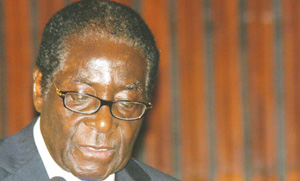
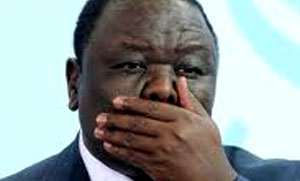

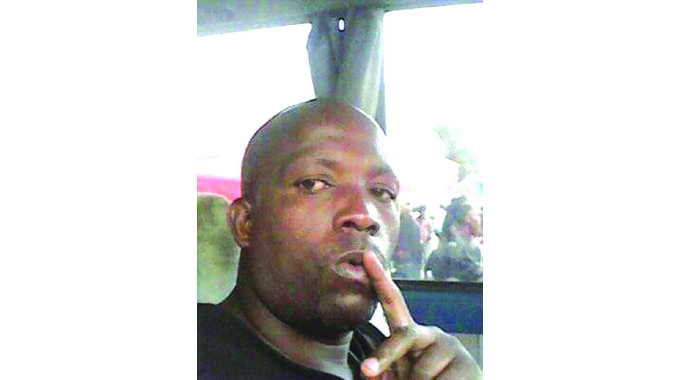
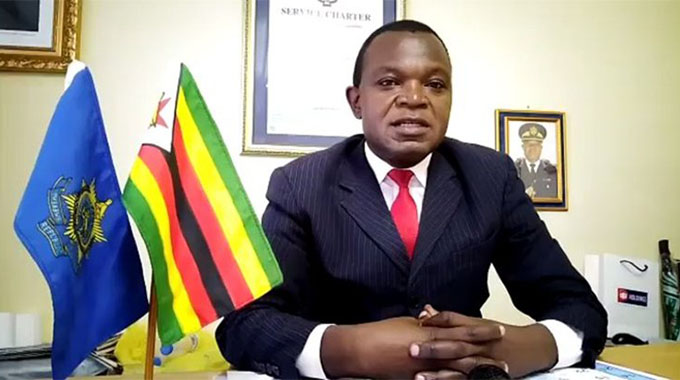

Comments